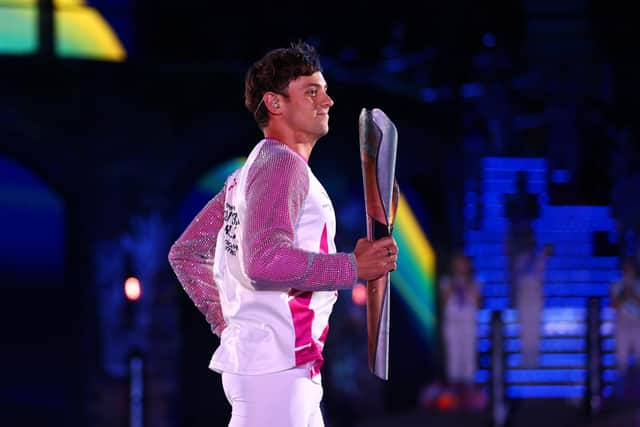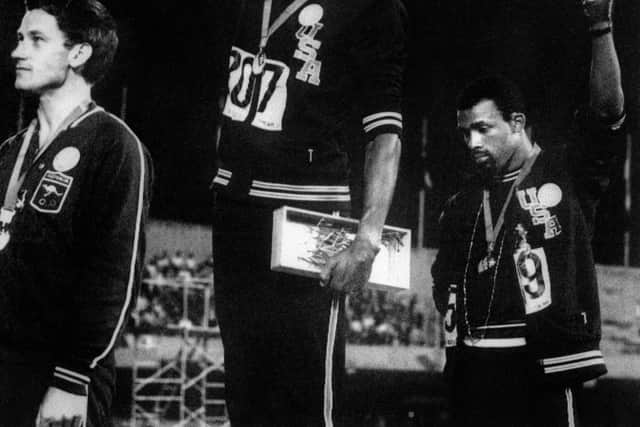Birmingham Commonwealth Games is proving that sport and politics do mix – Christine Jardine MP
These games in their first acts turned the old maxim about not mixing sport and politics on its head.
And not just in the compelling drama of its opening ceremony but in the very expression of its competitions and recognition of diversity. Both on the playing field and on the victory podium. An expression of modern Britain, of the diversity of the Commonwealth and how far the games have developed.
Advertisement
Hide AdAdvertisement
Hide AdIt was, after all, only in Edinburgh in 1970 that they became the Commonwealth Games and the word ‘empire’ was dropped.
And this time ‘friendly’ will not be enough to capture what they offer. I think it would be fair to say, that as with the opening ceremony of every major sporting event, there can often be a dose of nervous anticipation.
Excitement, yes. But over the years, we have watched bemused by kaleidoscopes of cultural confusion and imagery which can leave us seasick rather than satisfied.
Confused rather than enlightened about the host city. But Birmingham last week was the complete antithesis of that.
It didn’t quite have the surprise and thrill of the Queen parachuting into London, but Prince Charles driving an Aston Martin into the stadium was the perfectly appropriate and nostalgic entrance.


What followed was a multicultural, diverse and joyful representation of Europe’s youngest city.
The mechanical raging bull, dragged into the stadium by women representing chain makers from the industrial revolution, was almost uncomfortable to watch. A reminder of who we were, the journey we have made and the journey we still have to make.
The colour and culture of the neon-clad dancers from Ireland, India and beyond was a dazzling representation of integration and a nod to Birmingham as the second-most diverse city in the country, after only London.


Advertisement
Hide AdAdvertisement
Hide AdThe statement by Malala Yousafzai about the welcome she had received when she first came to the city that she and her family now call home clearly underlined the message.
And that was not the only thought-provoking aspect. Tom Daley carried the Queen’s baton alongside the LGBT flag, to remind us that in 35 of the countries competing, homosexuality is still a crime. Seven of them have a maximum penalty of death.
Each athlete who carried the baton in turn in the stadium was doing so to raise awareness of a specific cause.
Cancer research, mental health, the NHS and its frontline workers, and finally Denise Lewis delivered the baton in the name of diversity and inclusiveness.
That commitment is enshrined in the organisers’ decision to reject a separate para-games in favour of a single all-encompassing, integrated celebration of sport. That it has taken so long to achieve is the only disappointment.
Here is an international event which promises to aim for more than the sporting greatness of its individual competitors.
Perhaps it is something in the post-pandemic air, or perhaps our sports in general have woken up to what so many of us have known for so long. That the old maxim about sport and politics, which the Commonwealth Games has so demonstrably cast aside, was never really followed anyway.
Vladimir Putin is not the first autocrat to use sport, especially the Olympic Games to exploit their athletes and pursue success in the name of international validation.
Advertisement
Hide AdAdvertisement
Hide AdSporting boycotts were a major part of the international anti-apartheid campaign which both highlighted and helped end the injustice of white minority rule in South Africa.
And was there ever a more simple yet powerful expression of protest that the gloved fists of US athletes raised in the Black Power salute at the Mexico Olympics in 1968.
But this time it is the sporting establishment themselves who have taken up the baton and seem determined to make a contribution to change.
Perhaps they have been emboldened by the reaction of others such as Eurovision, grand slam tennis and various other sports in ostracising Russia and supporting of Ukraine.
In this country, many of our major cities, Edinburgh included, are vying to host the song contest in Ukraine’s place to carry the message forward.
It is clear that when the cause is big enough it cannot be kept out of entertainment or the sporting arena.
Ironically, the juxtaposition of what we are seeing in Birmingham with our current political landscape is stark. Tory leadership candidates look wildly out of sync with not just the country but the rest of the world as “the other” – celebrated loudly on Thursday night – is shunned in debate after debate.
It is hard not to feel that those cheering spectators were representative of many more than were actually in the stadium.
Advertisement
Hide AdAdvertisement
Hide AdWhat they were celebrating and will be expressed throughout these games is a living, breathing argument against building barriers. Against sending people away.
Birmingham itself as a city epitomises what can be gained by welcoming people who bring a new dimension, new value to our society.
The recognition that we have come from many different starting points to reach where we are as a society.
That we need to work harder to ensure that we are inclusive in all that we do and that the ability to achieve their potential is available to all.
But perhaps one sentence from Lenny Henry, a national treasure whose family came here from the Caribbean, summed up the aim of these games.
The Commonwealth, he said, is about one thing. Being universal.
Christine Jardine is the Scottish Liberal Democrat MP for Edinburgh West
Comments
Want to join the conversation? Please or to comment on this article.
